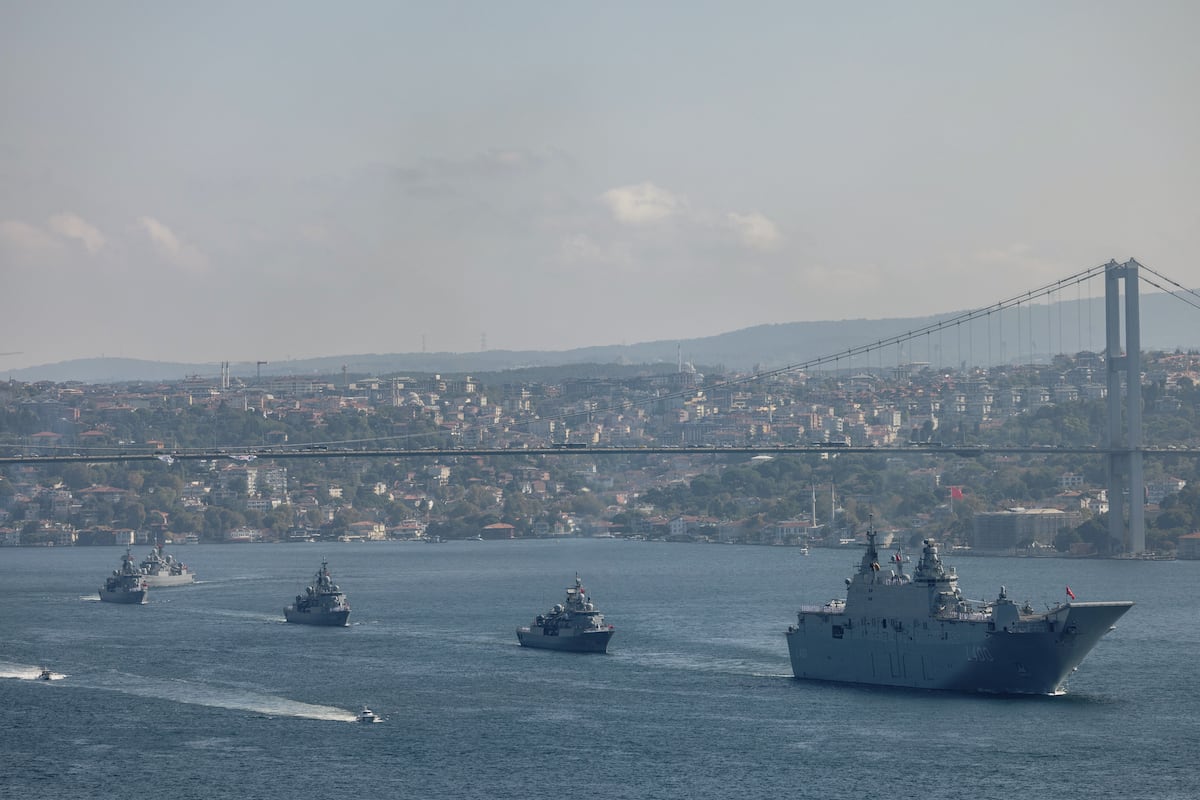


ISTANBUL — Turkey and Egypt staged their first joint naval drill in more than a decade last week, signaling a cautious thaw in relations after years of political hostility.
The Eastern Mediterranean drills suggest Ankara and Cairo are easing tensions, though their strategic interests remain far from aligned.
The exercise, dubbed Sea of Friendship-2025 (Bahr El Sadaka) held between Sept. 22 and 26, 2025, was the first such training after a 13-year hiatus.
According to the Turkish Navy, top brass present included Turkish Fleet Commander Adm. Kadir Yıldız and Chief of Staff of the Egyptian Navy Rear Adm. (UH) Mohamed Hassan El-Sherbeny.
The two countries had regularly held joint military exercises until 2012, when political relations deteriorated after the overthrow of the Egyptian government. Diplomatic ties remained strained for more than a decade, halting defense cooperation.
Turkish President Recep Tayyip Erdoğan’s February 2024 visit to Cairo, his first in 12 years, marked a broader normalization effort spanning political, economic, and security domains, opening channels for political dialogue, trade and even for military cooperation.
Ret. Rear Adm. Cem Okyay framed the Turkey–Egypt naval exercise as both a symbolic and practical milestone. He stressed that while Turkish and Egyptian ships have long shared the same waters, conducting joint drills after more than a decade reflects a new diplomatic opening spearheaded by the navies themselves.
Beyond the military dimension, Okyay highlighted growing opportunities for defense industry cooperation, modernization projects and humanitarian missions. He argued that Ankara’s cautious rapprochement with Cairo is reinforced by economic investments and high-level political dialogue, showing the relationship runs deeper than a one-off exercise.
Serhat Güvenç, a professor of international relations, described the the event as a cautious but notable thaw in ties. He argued the drills marked the end of a long freeze, signaling that Ankara and Cairo have regained enough trust to cooperate militarily once again.
At the same time, he framed the exercise as a pointed message to Israel, whose aggressive moves in the Eastern Mediterranean have also unsettled Egypt.
Yet Güvenç warned against exaggerating the degree of rapprochement. That is because Egypt has not shifted on its core interests, as shown by its recent rejection of Turkey’s maritime boundary deal with Libya.
The joint exercise suggests the “bad old days” are behind the two countries, but it does not mean their strategic positions in the region fully align, Güvenç said.
Cem Devrim Yaylali is a Turkey correspondent for Defense News. He is a keen photographer of military ships and has a passion for writing about naval and defense issues. He was born in Paris, France, and resides in Istanbul, Turkey. He is married with one son.

